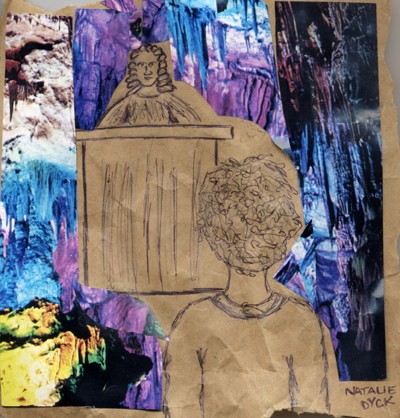Students have the power
Being aware of the appeal process can ensure students avoid academic troubles
Although university procedures are complex and at times difficult to understand, students are not powerless against the system. In fact, the right to make appeals is a right many students do not know they have.
“A lot of students might not ... realize that they have the option of extending an exam deadline or dropping a course after the drop date,” UWSA vice-president advocate David EisBrenner said. But according to EisBrenner, awareness of the appeal process seems to be growing.
EisBrenner said that during the fall term he noticed an increase in the number of students coming to him with questions about appeals. Most of the concerns, he said, pertained to assignment extensions, retroactive withdrawals and concerns with professors.
Senate and grade appeals are the two types of appeals students can make. Senate appeals are reviewed by the senate student appeals committee and include appeals to defer exams, extend deadlines for incomplete coursework and withdraw from a course after the official drop date.
According to U of W registrar Colin Russel, the 2008-09 fall/winter term saw a total of 80 appeals to defer exams and 125 appeals regarding incomplete term work.
“We need to have regulations to run everything by, but we don’t want them to be set in stone,” Russel said.
Bronwyn Jerret-Enns, a second-year English major at U of W, is thankful that the appeal process is in place for students.
“I’m glad I had a recourse action to take,” she said.
Last year, Jerret-Enns made an appeal for retroactive withdrawal. Although she registered for courses for the fall/winter semester, she was unable to attend university without a student loan.
“I assumed I would just be withdrawn from my classes,” she said, adding that she did not attend any of them.
But in December of last year she received a letter from the university notifying her that her tuition fees were overdue. Consequently, since she had not notified the university that she had not been attending classes, she would receive failing grades in the courses she was registered in.
After receiving the letter, Jerret-Enns met with an academic advisor and submitted an appeal for retroactive withdrawal.
“It was stressful ... because there was the potential to be on the hook for owing a lot of money and [receiving] seriously damaging marks,” she said.
The senate reviewed and accepted her appeal.
“The appeal process is there to allow students to tell their side of the story and to put their case before an independent body that has no ties to either side of the argument,” EisBrenner said. Although EisBrenner stressed the importance of the appeal system, he said it is a process that should not be used frivolously.
“Appeals are sort of the last step,” he said, adding that students should take advantage of supports on campus, such as tutoring and counselling, to avoid having to resort to appeals.
Published in Volume 64, Number 20 of The Uniter (February 25, 2010)







